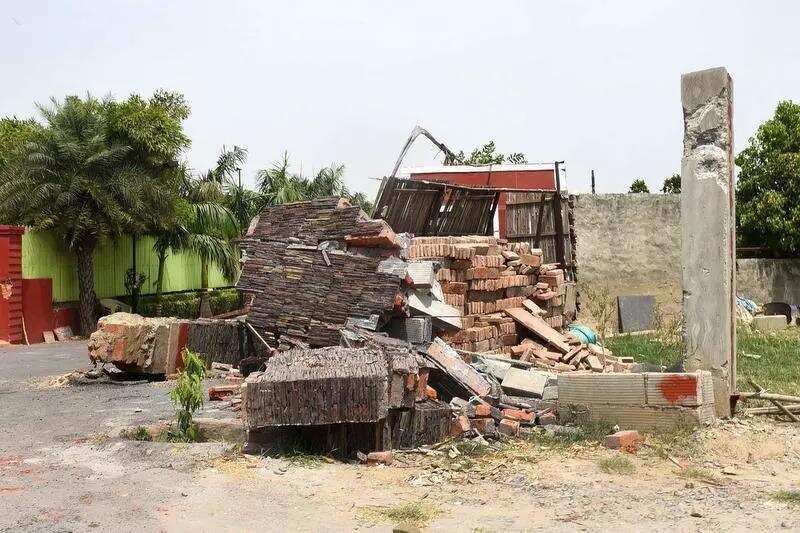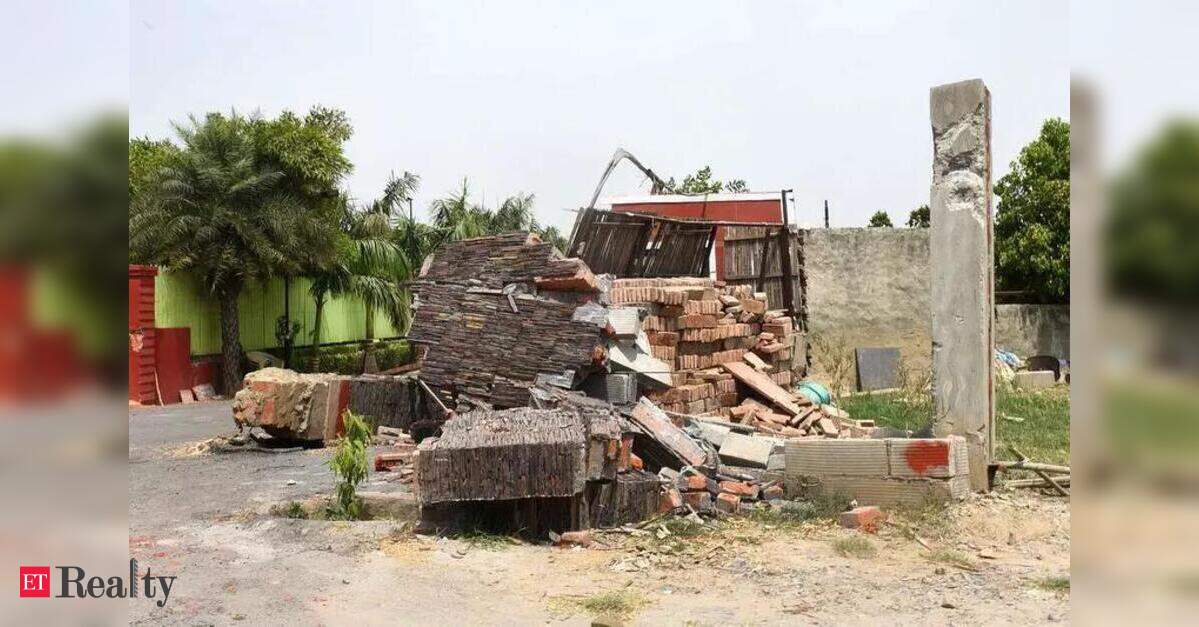
NOIDA: The Greater Noida Industrial Development Authority (GNIDA) is facing criticism from the Comptroller and Auditor General (CAG) for permitting construction on the Hindon floodplain, which is designated for natural conservation.
The CAG audit revealed that rather than protecting these vital green areas, GNIDA has facilitated the development of farmhouse plots in restricted zones, leading to serious environmental and regulatory violations.
In 2011, GNIDA initiated the ‘Institutional Farmhouses’ scheme, followed by the ‘Krishi Farmhouses’ scheme in 2015, both contravening established regulations. These initiatives, intended for temporary structures, evolved into permanent homes, businesses, and even polluting workshops. In Haibatpur village, krishi farmhouses were built as close as 130 meters from the Hindon’s banks, in a zone intended for natural preservation. The audit emphasized GNIDA’s inaction regarding encroachments, allowing developers to construct on floodplains instead.
The audit referenced the Regional Plan 2021, which classified the Hindon as a “natural conservation zone,” allowing only limited activities such as farming and afforestation; construction was capped at 0.5% of the area. The plan explicitly forbade construction and habitation in floodplains, riverbeds, or banks.
A 2010 state government directive mandated development authorities to identify floodplain areas in Master Plans, preserve them as green spaces, and prohibit building activities. The National Green Tribunal imposed an interim construction ban in 2013 on the floodplains of the Yamuna and Hindon, which was reaffirmed by a 2016 notification from the Ministry of Water Resources.
Despite these directives, GNIDA misrepresented the Hindon land as designated for “agricultural use” in its Master Plan 2021 and launched farmhouse initiatives in blatant violation. The ‘Institutional Farmhouses’ scheme aimed to enhance “planned” agricultural development, allowing large plots to be auctioned to developers for subleasing to smaller farmhouse plots, permitting construction of one dwelling, swimming pools, nurseries, etc., with a maximum floor area ratio of 15%.
GNIDA allotted three plots totaling 1.35 million square meters. An SDS Infratech-led consortium received FH-1, while Gaursons India and Gaursons Hi-tech Infrastructure were allotted FH-2 and FH-3, respectively. By April 2021, they collectively owed ₹598 crore. FH-1 was canceled in 2017 due to non-payment, although the case remains pending in court. FH-2 and FH-3 were not canceled despite defaults, with reductions in FH-3’s land size due to GNIDA’s non-possession issues. The audit criticized GNIDA’s land allotment practices, whereby plots were granted without securing clear ownership. At the time of allotment, FH-1 was under development on 6,831 sqm, while portions of FH-2 and FH-3 were subject to litigation or encroachment. GNIDA issued leases for these plots in two segments, but problems persisted until 2022.
Farmers sought higher compensation and encroached on the land, but GNIDA placed the responsibility on developers. It even allowed developers to mortgage land despite outstanding payments, a practice condemned by the Supreme Court in the Amrapali case. For FH-2, GNIDA permitted a mortgage conditioned on banks clearing ₹107 crore in dues, but no payments were received. Approved layouts depicted 91 farmhouses across FH-2 and FH-3, with over 150,000 sqm of permanent construction, effectively transforming a green buffer into a private residential enclave.
In May 2015, GNIDA rolled out the ‘Krishi Farmhouses’ scheme for farmers whose land had been acquired, allotting smaller plots via lottery for temporary structures and agricultural use. Nine plots covering 84,047 sqm were assigned at a premium of ₹42 crore, yet these plots were situated within the Hindon floodplain, merely 130 to 553 meters from the riverbank. A 2019 inspection and satellite imagery revealed extensive encroachments, including housing and retail establishments.
GNIDA acknowledged these encroachments in 2015 and 2016 but failed to take appropriate action. Instead, in 2019, its board decided to discontinue the scheme and refund deposits with 4% interest. By 2021, eight allottees had been refunded, with one case still pending in 2022.
By April 2021, the combined dues from both schemes had surged to ₹646 crore. Despite substantial defaults, most allottees faced no serious consequences, and the farmhouses sanctioned under both schemes remained unfinished even after a decade.
The audit concluded that GNIDA had failed in its fundamental duty — instead of protecting green areas and floodplains, it enabled their transformation into private farmhouse developments while permitting developers to default on significant sums.




